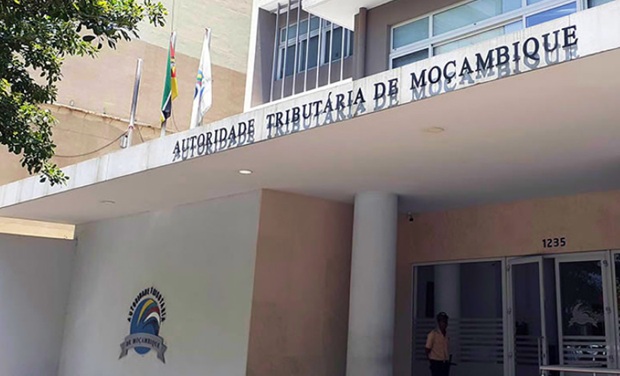Mozambique: US funding cut halts construction of Pebane and Mopeia district hospitals
Mozambique targets US$1.45 billion tax recovery by 2029 under PRECE plan

FILE - The Economic Recovery and Growth Plan (PRECE) also foresees introducing a digital system for domestic tax payments."The Tax Authority (AT) has made efforts to modernise and digitalise the country’s tax system, aiming to improve revenue collection, increase transparency, simplify processes for taxpayers and combat tax evasion, through the digitalisation of tax administration processes," the PRECE reads. [File photo: Carta]
The Mozambican government plans to recover US$1.45 billion in lost tax revenue, according to data from the Economic Recovery and Growth Plan (PRECE) accessed by Lusa.
The document, recently approved by the Council of Ministers, sets objectives and plans for the current governance cycle, highlighting the intention to “broaden the tax base and fiscal efficiency”.
“The objective is to identify and implement short- and medium-term administrative measures to mobilise additional resources for the Budget, estimated at around US$1.45 billion,” it states.
PRECE also foresees introducing a digital system for domestic tax payments, “as part of the process of modernisation and digitalisation of the tax system”.
“The Tax Authority (AT) has made efforts to modernise and digitalise the country’s tax system, aiming to improve revenue collection, increase transparency, simplify processes for taxpayers and combat tax evasion, through the digitalisation of tax administration processes,” the PRECE reads.
It adds that “digitalisation can support the improvement of efficiency in collecting important taxes such as VAT”, but notes that “despite the efforts and some progress achieved, the effectiveness of these initiatives largely depends on overcoming structural, technical, and human challenges”.
“Their consolidation further requires a coordinated approach between the Government, the private sector and citizens,” the government admits, referring to “modernising the system for the registration and control of local revenues,” including fees, licences and services, “taking as a premise the standardisation of the code of conduct in force throughout the country, which could gradually integrate” banking via mobile services.
The document also warns that “the economic and financial scenario presents enormous challenges” with measures to be adopted aiming at “improving this framework”.
Mozambique expects to reduce the deficit to US$1.525 billion in 2026, setting budgeted expenditures at US$7.188 billion, the government announced on 7 October.
According to the proposed law approving the Economic and Social Plan and State Budget (PESOE) 2026, approved that day by the Council of Ministers and to be submitted to the Assembly of the Republic, the budget deficit will be lower than the projection for this year, set at US$1.702 billion.
In 2024, the deficit of Mozambican public accounts was US$2.091 billion, equivalent to 11.1% of GDP, and in 2023 it amounted to US$1.953 billion, equivalent to 13.4% of GDP.
The government proposal indicates that state revenue should reach US$5.663 billion next year.
“The priorities focus on macroeconomic stability, efficiency in public spending, and the promotion of transparency and accountability. Resource allocation for 2026 centres on investment in productive, logistical, and social infrastructure, with emphasis on transport, digitalisation, roads, education, and health,” spokesperson of the Council of Ministers, Inocêncio Impissa, said at the end of the cabinet meeting.












Leave a Reply
Be the First to Comment!
You must be logged in to post a comment.
You must be logged in to post a comment.